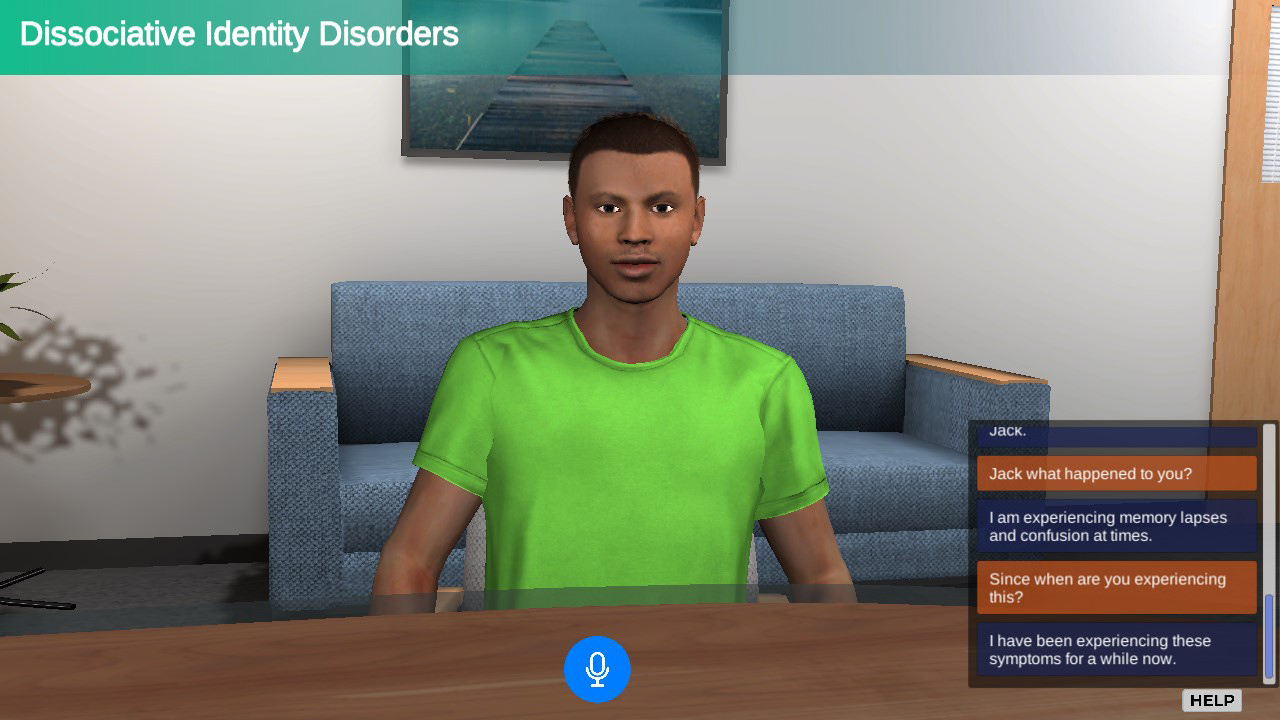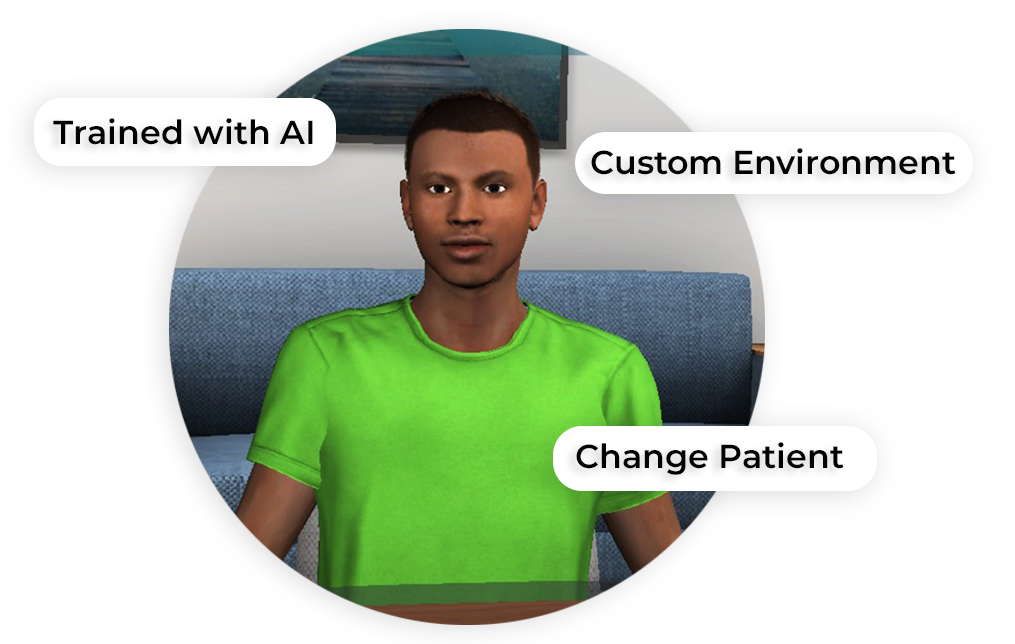Dissociative Identity Disorder Assessment
Available in VR and web browser
This tool for Dissociative Identity Disorder assessment is designed to help learners practice their patient assessment skills.
Employing end-to-end AI and technologies like large language model (LLM) and deep learning, these virtual ‘clients’ possess the ability to respond like real humans. Learners can conduct a completely organic conversation with the client, asking them about their symptoms and problems faced. Based on the client’s responses, a line of diagnosis can be established, and treatment plan formulated.
The MedVR Ed XR Platform provides trainers and instructors with the facility to review conversation logs and analyze learner performance based on customized rubrics. Based on the performance review, trainers will be able to provide precise and effective feedback.
- Educate the patient on the assessment procedure
- Ask relevant question to gain insight into patient’s state of mental health
- Evaluate collected data to help suggest relevant course of action

- American Psychiatric Association. (2013). Diagnostic and statistical manual of mental disorders (5th ed.). Washington, D.C.: American Psychiatric Association.
- Brand, B. L., Classen, C. C., McNary, S. W., & Zaveri, P. (2009). A review of dissociative disorders treatment studies. The Journal of Nervous and Mental Disease, 197(9), 646-654.
Customize Your Case
Build your own AI-Humans patient
MedVR Education is bringing to you a no-code authoring platform to create new patient cases and customized patient history. Put together your own cases by making selections from a wide range of customizing features.
- Create with web-based authoring tool
- Publish in VR, desktop, and mobile devices
- Train your virtual patient by yourself
- Select patient from a diverse background
- Choose preferred virtual environment
- Perform real-time testing
- Track and train new data

 AI Patient Assessment
AI Patient Assessment Natural Language Processing
Natural Language Processing
Core Skills Training

Dissociative Identity Disorder Assessment
Jack is a 31-year-old male. He realizes that he tends to forget things. He is not feeling good about it. For example, he drives from one place to the other and does not remember what happened during his drive. Sometimes, when talking to someone, he realizes he’s missed out part of the conversation or he does not remember having purchased certain items in his home.
As a mental health professional, whether a psychiatrist, technician, or someone with a social work background, your task is to explain the assessment process to the client, make them feel comfortable, understand their current state of affairs, and ask relevant questions. This will help formulate an assessment of the client’s mental health and initiate a means of improvement.


